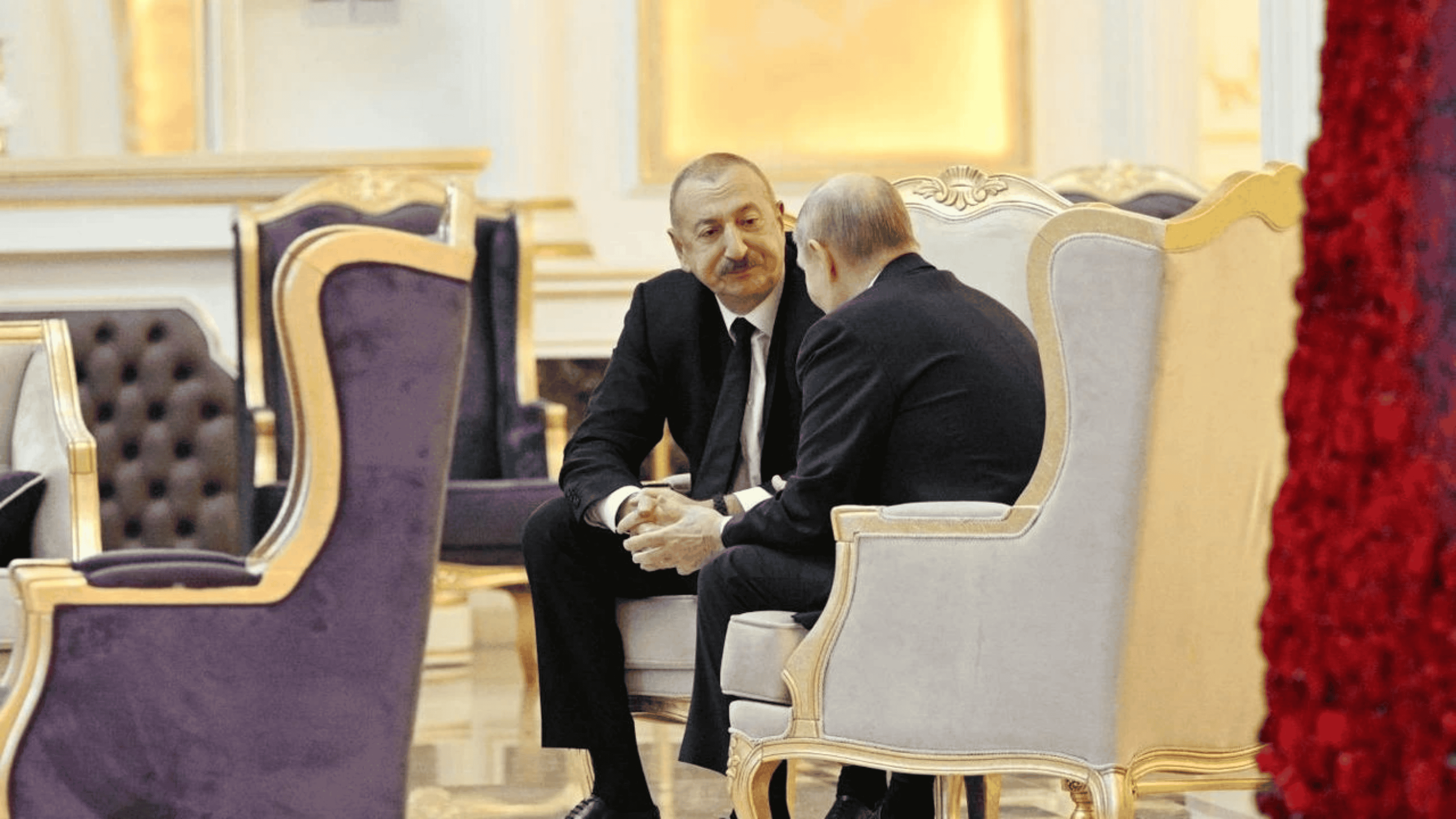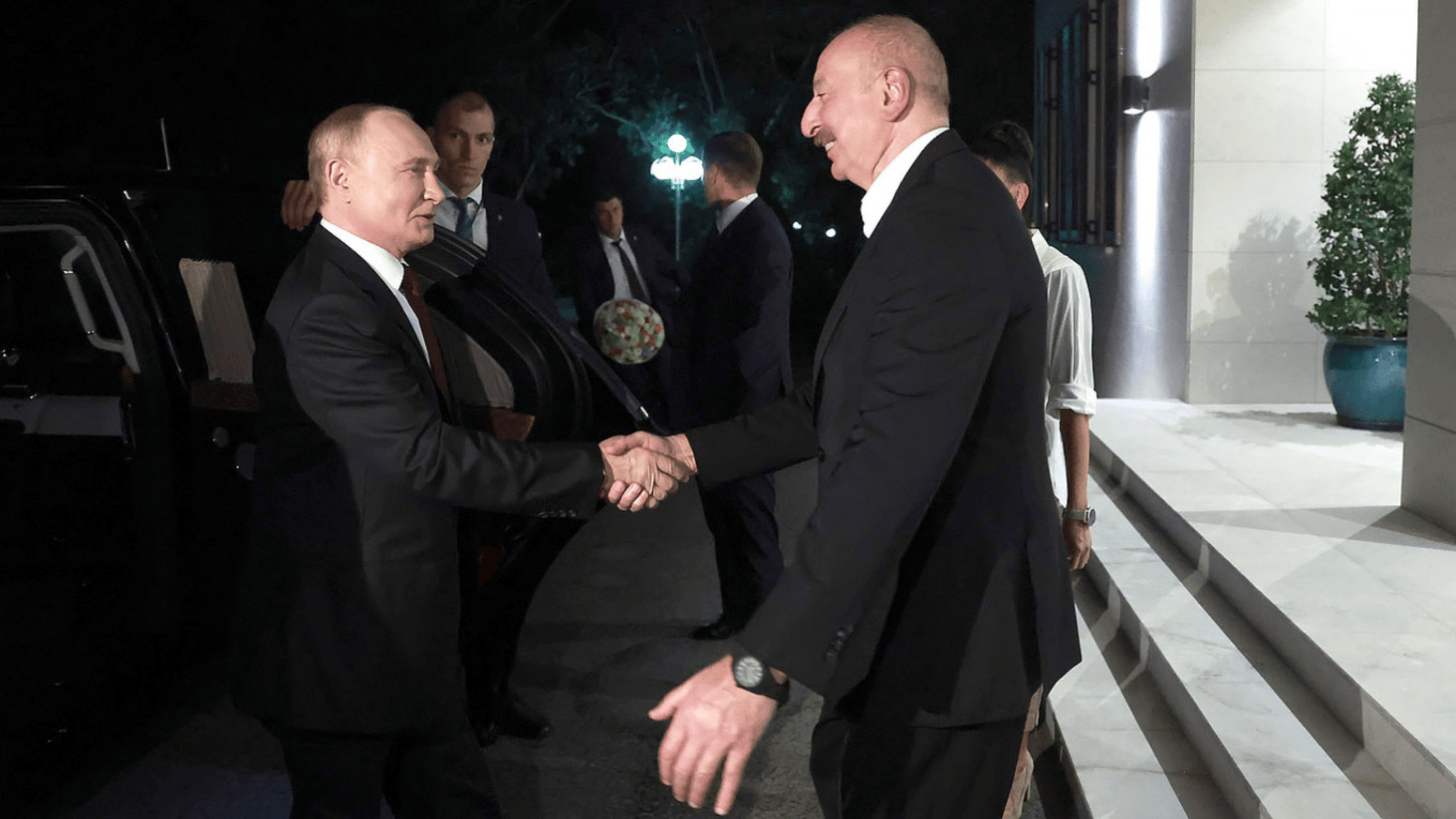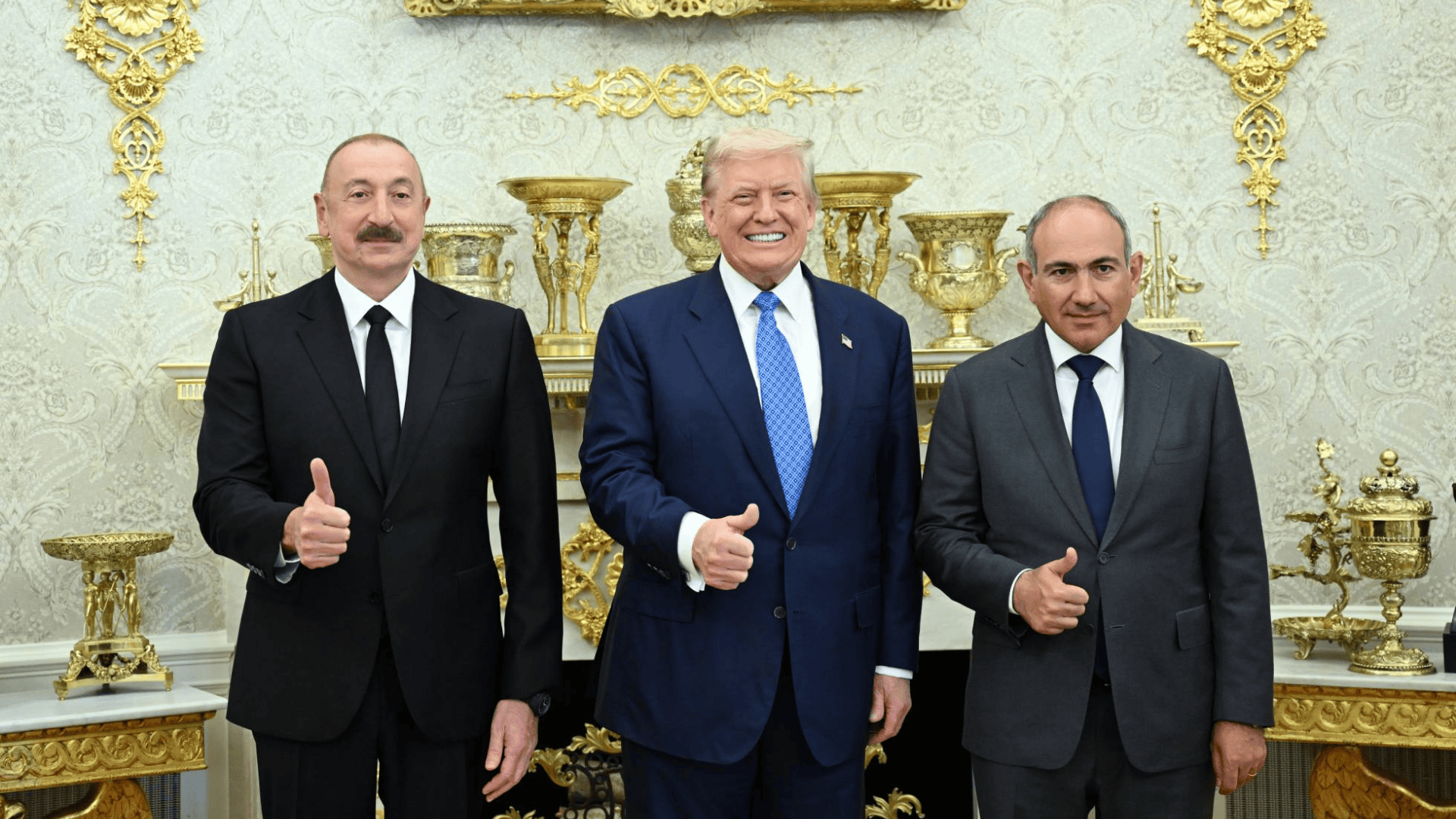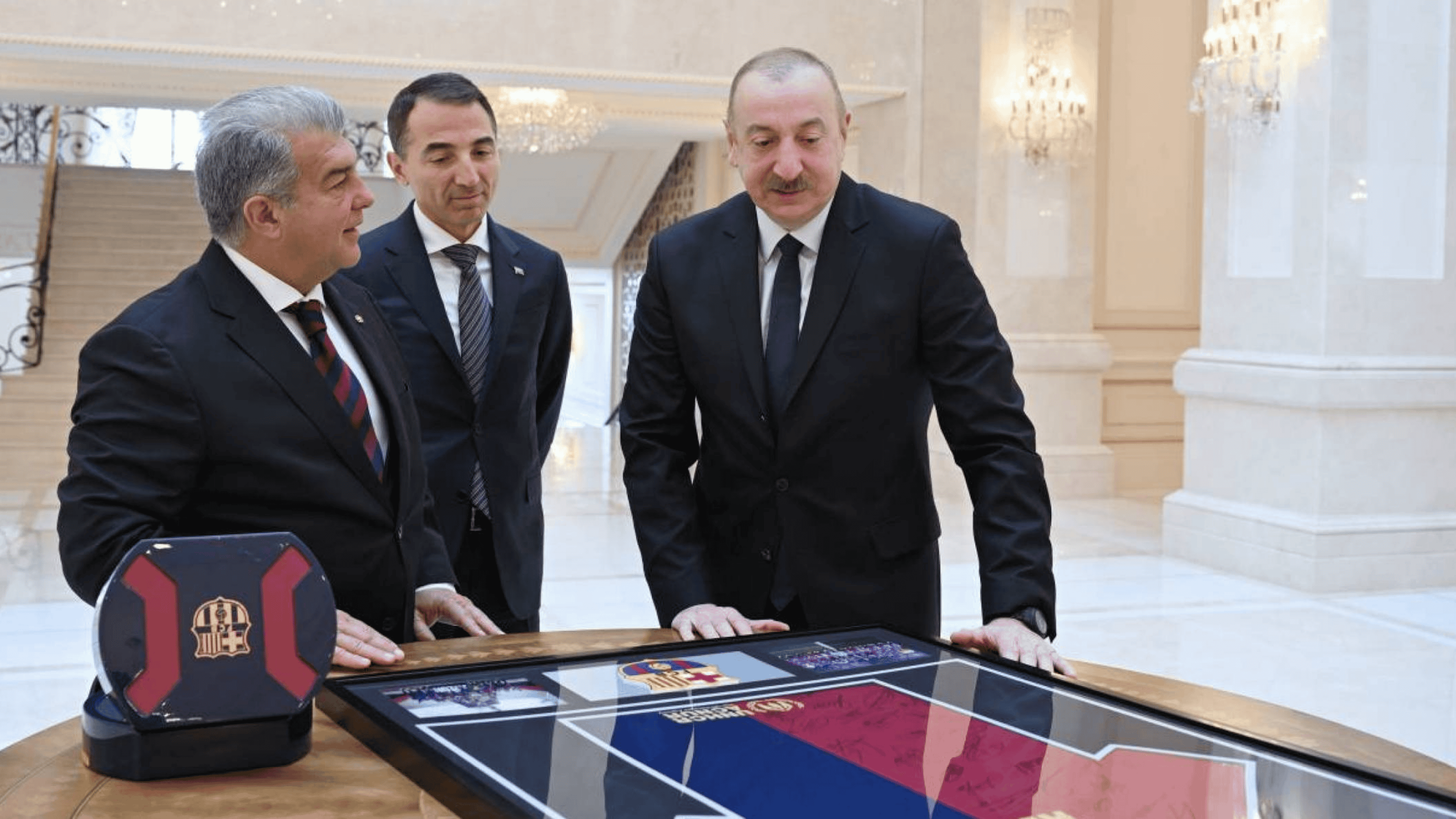Ramiz Mehdiyev: From Azerbaijan’s ‘grey cardinal’ to house arrest
Azerbaijan’s gray cardinal arrested
Ramiz Mehdiyev, one of the most influential figures in Azerbaijan’s political system for decades, a former head of the Presidential Administration and ex-president of the National Academy of Sciences, has become the subject of an investigation on charges of treason and attempting to seize power by force.
The Sabail District Court in Baku has ordered that he be placed under house arrest.

The indictment of Ramiz Mehdiyev — a veteran of the ruling New Azerbaijan Party and long considered the “grey cardinal” of the country’s political elite — on charges of treason and attempted coup has drawn wide public attention. The case has reignited interest in Mehdiyev’s decades-long career and his role in shaping Azerbaijan’s political system.
The situation is particularly significant: on one hand, it offers insight into internal power dynamics surrounding Mehdiyev’s rise and fall; on the other, it raises questions about the potential impact of the charges on Azerbaijan’s future political trajectory.
This article examines the key stages of Mehdiyev’s political career — his influence within the Presidential Administration, his gradual weakening and subsequent appointment to head the National Academy of Sciences, his involvement in family scandals, and his current house arrest amid treason accusations.
The analysis maintains a neutral tone and presents a balanced overview of differing perspectives, including opposition views, media narratives, and possible political implications.
Political role and influence of Ramiz Mehdiyev
Ramiz Mehdiyev played a leading role in modern Azerbaijani politics for over four decades. From 1994–1995 until 2019, he headed the Presidential Administration, becoming one of the key figures shaping the country’s political course.
Many saw him as the real power behind the scenes — the éminence grise of Azerbaijan’s leadership.
Over the years, Mehdiyev was not just a bureaucrat but an ideologue and one of the main architects of the political system. During the Soviet era, he held a senior post in Heydar Aliyev’s team. After independence, as head of the Presidential Administration, he gained control over almost every part of the executive branch.
His influence was especially strong in the security services and media. Political analyst Oktay Gasimov says that during his 25 years in office, “he built powerful levers of influence over the security apparatus and other branches of power, especially the media sector.”
For years, there were rumors about his ties to various political groups and claims that some of his actions were driven by outside influence. Mehdiyev reportedly built a vast business empire through his inner circle, consolidating both wealth and political influence. Because of this, he was seen as a “shadow leader” able to shape decisions across legislative, executive, and media institutions.
His informal power often surfaced in elections. Osman Gündüz, head of the Azerbaijan Internet Forum, recalls that during the 2005 parliamentary elections — when he ran in the Balakan district — Mehdiyev interfered in the process. According to Gündüz, Mehdiyev summoned the district’s executive head to Baku, and soon after, a court “revoked my registration as a candidate in five minutes.” The winner was a rival close to Mehdiyev.
For many years, Mehdiyev also shaped the ideological line of the ruling New Azerbaijan Party. Decorated with top state awards — including the Heydar Aliyev, Istiglal, Shohrat, and Sharaf orders — and holding an academic title, he was presented in official media as a symbol of continuity and state experience.
Critics, however, say his rise coincided with growing authoritarianism and pressure on the opposition. Arif Hajili, a leader of the Musavat Party, recalls: “When I was elected to parliament but barred from taking my seat, and later repeatedly jailed, Ramiz Mehdiyev played a special role in those decisions.”
In October 2019, President Ilham Aliyev dismissed Mehdiyev as part of a reshuffle, saying it was time for senior officials of his generation to retire.
Soon after, Mehdiyev was appointed president of the National Academy of Sciences (2019–2022). The move was seen both as a sign of declining political influence and an attempt to keep him in a formally prestigious role.
Political analyst Oktay Gasimov notes: “Although he had been removed from active politics for five or six years, his appointment to the Academy showed the authorities still wanted to show him respect. Even there, however, he tried to influence political processes — and that eventually led to his removal.”
Charges and public debate
The charges against Ramiz Mehdiyev shocked Azerbaijani society. Authorities accuse him of three serious offenses under the Criminal Code: Article 278.1 (actions aimed at seizing state power), Article 274 (treason), and Article 193-1.3.2 (legalisation of property obtained by criminal means). Each of these offenses is classified as particularly grave. If a court proves his guilt, Mehdiyev could face between 12 years in prison and a life sentence.
The indictment does not provide details of Mehdiyev’s alleged actions. Authorities said the State Security Service conducted a special operation in connection with the case. The Sabail District Court in Baku placed him under house arrest rather than prison, citing his age and health. During the four-month house arrest, his communication and movement will be significantly limited.
Public opinion quickly split. Opposition figures and civil society members who said they suffered under Mehdiyev’s influence welcomed the detention as a long-overdue act of justice.
Serdar Jalaloglu, leader of the Democratic Party of Azerbaijan, said Mehdiyev should have been arrested long ago. He called the charges fully justified:
“We knew 10–20 years ago that he served Russian interests… Ramiz Mehdiyev was at the origins of policies that forced the intelligentsia and young people to leave the country. He carried all this out under instructions received from Moscow.”
Some opposition voices describe Mehdiyev as a “Trojan horse” for the Kremlin, obstructing independent policy for years. Many in the opposition see the treason charges as a delayed response to his long-standing pro-Russian stance.
Other commentators argue the case reflects internal power struggles rather than progress towards democracy. Journalist Ganimat Zahid and activist Aziz Mamiev say Mehdiyev’s arrest shows a fight within the ruling team. They point out that he spent decades as a key figure in the system. From this perspective, the question of “treason” is more political than legal: it concerns regime consolidation rather than reform.
Many in society view Mehdiyev’s prosecution as targeting him as a representative of the old elite, now displaced by a new technocratic generation. Some see the legal case as symbolising a generational shift and a reorganisation of the power hierarchy.
Since the Second Karabakh War in 2020 and Azerbaijan’s full reintegration of the region in 2023, the country has shifted its geopolitical orientation. Jalaloglu notes that in recent years Azerbaijan abandoned a balanced foreign policy and moved closer to the West. He says this created conditions for “neutralising Russia’s agent network inside the country.”
In this context, the prosecution of Mehdiyev, seen as susceptible to Kremlin influence, can be viewed as an attempt to weaken pro-Russian elements within the government. Officially, the treason charge implies cooperation with foreign powers, primarily Russia.
Other opposition figures also call for accountability but question the process’s fairness. Front Party activists, including Mamed Ibrahim, said Mehdiyev orchestrated strategies to divide and suppress the opposition. They argue that even if his punishment serves historical justice, it does not reflect genuine intentions of the current government, which continues policies linked to Mehdiyev.
Some commentators note the irony: the same government that once accused the opposition of “treason” now applies the same law to its own “family member.”
Overall, public discussion remains divided. Some see Mehdiyev’s prosecution as the end of an era. Others view it as another stage in the ongoing power struggle within the ruling elite.
Media rhetoric and political consequences
Recent developments around Ramiz Mehtiev have sparked widespread coverage in Azerbaijani media, revealing a sharp contrast in reporting. Pro-government outlets frame his criminal case in terms of loyalty to the state, portraying him as the “head of a treacherous network.”
These outlets depict Mehtiev as a figure who secretly acted against the country’s interests for years.
Officials echo this rhetoric. Arif Aliyev, head of the veterans’ council of the Yeni Azerbaijan (New Azerbaijan) party, said Mehtiev would be expelled from the party and stripped of all state awards and honours.
Pro-government publications also emphasise Mehtiev’s wealth. Many outlets have circulated details of his alleged assets.
Oxu.az and Axar.az published lists of properties, land, and businesses linked to Mehtiev and his close associates. According to these reports, he owns hundreds of hectares in Novkhani and other districts, multiple apartments and commercial properties in Baku, a 75% controlling stake in BTB Bank, the publishing house Sharq-Garb, and shares in the Sadaraq and Bina shopping centres.
Publishing these “asset registers” fuels public resentment and presents Mehtiev as morally compromised as well as politically culpable. Some reports even speculate on potential confiscation of his property under Article 193-1.3.2 of the Criminal Code if he is convicted.
Independent analysts describe the pro-government media campaign against Mehtiev as a “scapegoating tactic.” They argue that portraying a man involved in all major state decisions for decades as solely responsible for the country’s problems is unconvincing and mainly serves to protect the ruling administration’s image.
Significance for the political system and future developments
Current developments surrounding Ramiz Mehtiev mark a significant turning point in Azerbaijan’s political system. His case shows that even figures who have dominated power for decades can be sidelined and face criminal charges depending on shifts within the political elite.
The case highlights that in authoritarian systems, long-protected individuals can eventually lose influence. As the balance of power within the elite changes, yesterday’s pillars can become today’s targets. Mehtiev’s fall under serious criminal charges signals the emergence of a new power equilibrium within the ruling system.
This development affects Azerbaijan’s political system in several ways:
First, it strengthens the concentration of power. By removing Mehtiev, President Ilham Aliyev effectively ended the era of the old guard inherited from his father. The current administration now consists mainly of younger officials personally loyal to the president. The absence of figures like Mehtiev consolidates control in a single center.
Second, the case illustrates a hardening of political methods. Previously, internal power struggles largely remained behind the scenes, but now they manifest through public criminal cases. Charging Mehtiev with attempted coup shows the authorities’ willingness to suppress potential dissent within the system. It sends a signal to other officials: attempts to form independent factions will be punished. While this may temporarily strengthen stability, it could also create a climate of fear, affecting governance efficiency over the long term.
Third, there is a potential external dimension. Some analysts link Mehtiev’s removal to Azerbaijan’s gradual distancing from Russia and a more open engagement with the West. Mehtiev represented a Soviet-era mindset, with Russian influence shaping his outlook.
Following the 2020 Karabakh war and the restored sovereignty over the region in 2023, Baku now takes more independent decisions. In this context, Mehtiev’s prosecution can also serve as a signal to Moscow that Azerbaijan will not tolerate external interference.
This does not mean the country has fully adopted a pro-Western course, but it does indicate a shift in the balance of influence. Future actions against other pro-Russian figures may confirm or challenge this interpretation.
Арестован серый кAzerbaijan’s gray cardinal arrested























